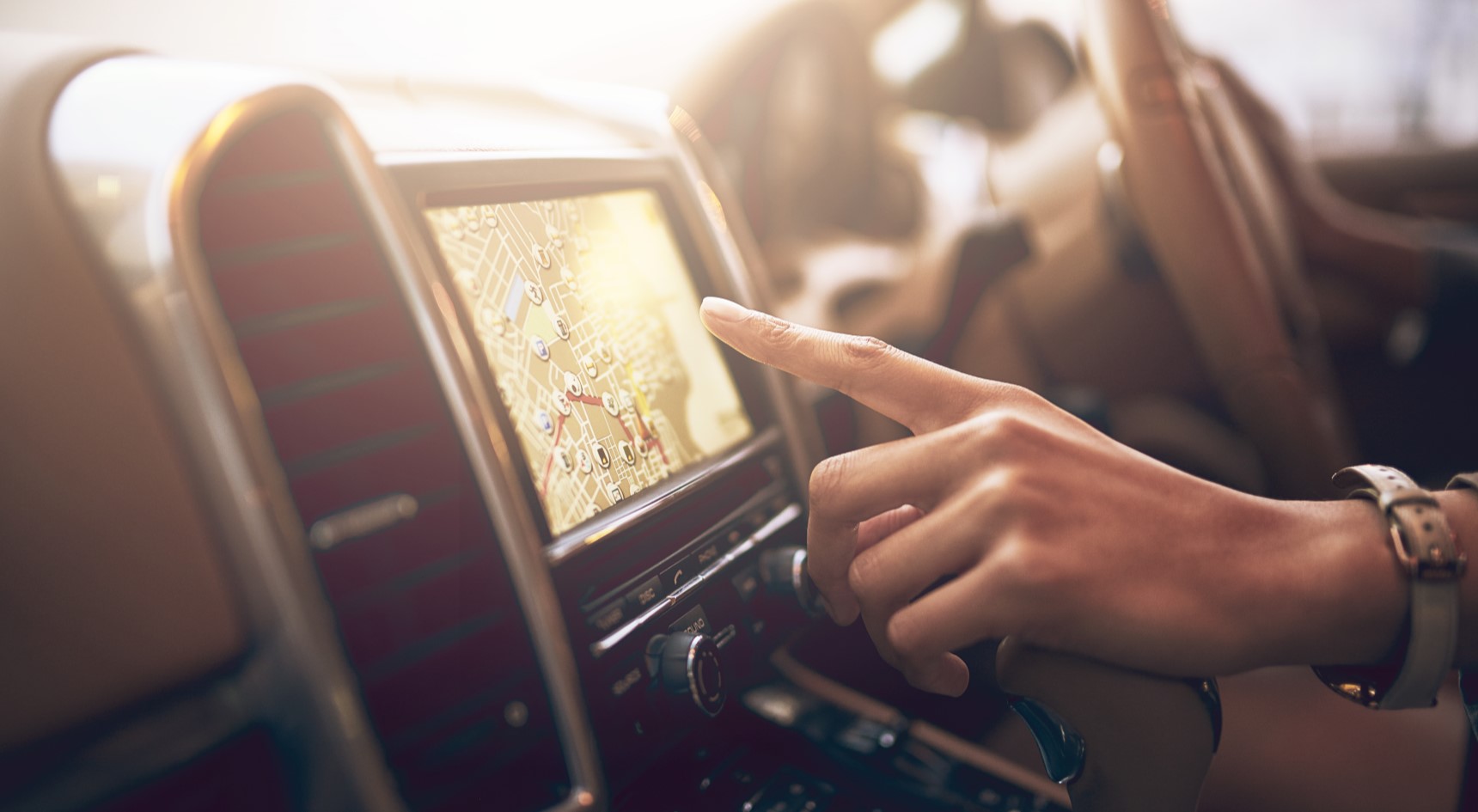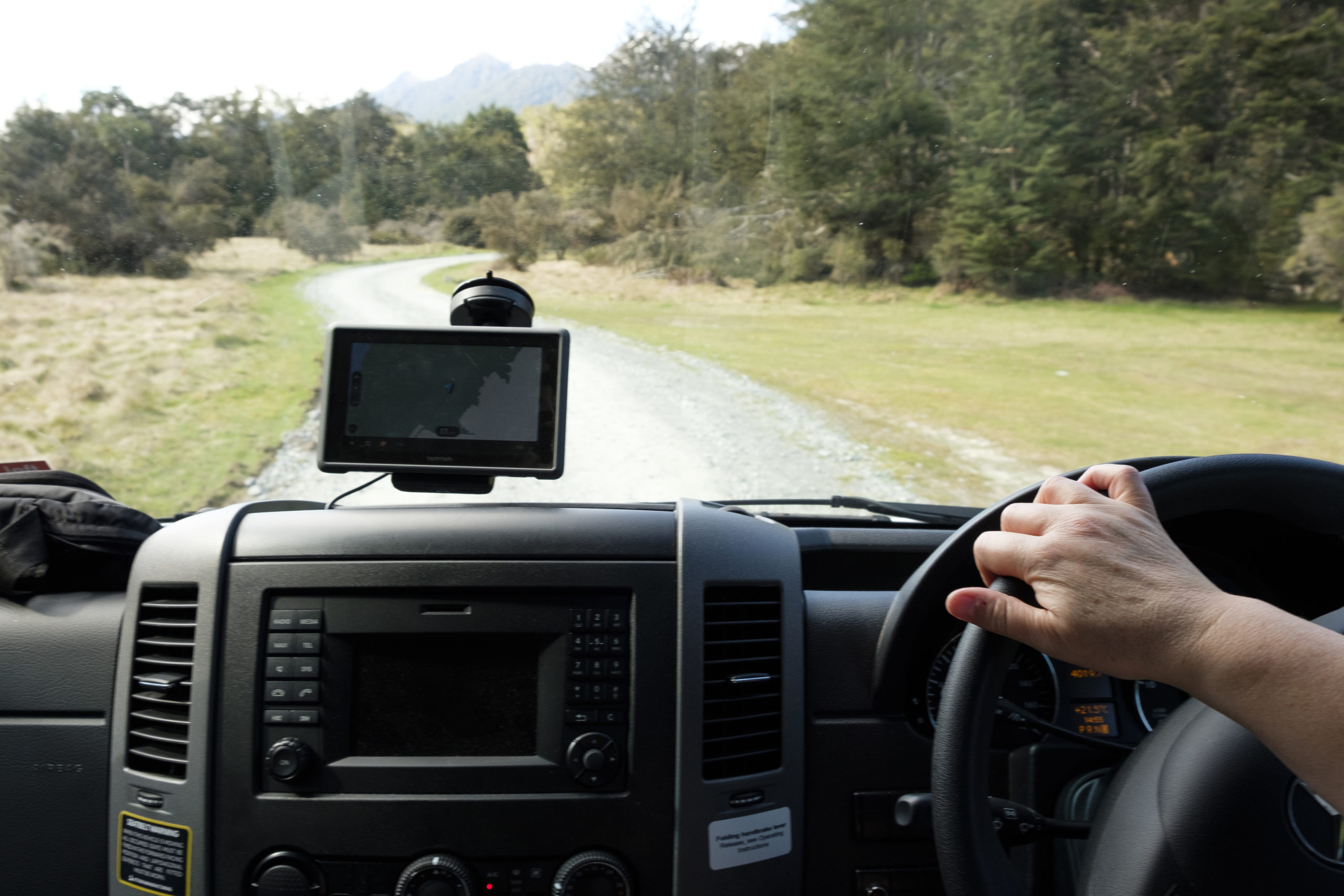GPS 101: What you need to know

Mapping out the road ahead is easy these days with the advent of GPS (Global Positioning Systems), but with so many options on the market, from car units to apps, how do you know what’s best for your journey?
Whether you already have a GPS unit, you’re looking to purchase one or you’re simply not sure what’s best, we’re here to give you a refresher on how they actually work (magic?), how to navigate safely and legally, and how they compare to other mapping tools like your mobile phone.
What is a GPS unit?
A GPS is a digital navigation system based on the data sourced from a range of satellites orbiting the earth. Pretty clever, right?
With the ability to be mounted on your dash or front windscreen, a GPS unit can direct you to your destination without even needing an internet connection. Nifty! Simply enter an address, and all those smart little satellites will tell your GPS (and you) how to get to your destination.
But the modern-day GPS is so much more than a digital, talking street directory. Most modern GPS units have a whole host of mod-cons including speed camera warnings, lane guidance and even a calling feature (if you connect via Bluetooth with your mobile phone).
GPS technology is also available through apps on mobile phones and through the infotainment system in modern cars. But there are a few key differences between the 2 that are important to keep in mind when looking into your next GPS purchase.

Mobile phone vs. vehicle GPS unit – the comparison
These days, many of us have GPS apps on our phones (we’re looking at you, Google Maps) and may prefer to use them to get around. Whether you plug one into your vehicle’s infotainment system or mount your device to its own stand, there are a number of ways to use your phone to navigate the journey.
However, a GPS unit – completely separate from your mobile device – can be a great option for a number of reasons including security and simplicity.
Firstly, GPS units do not require the internet to function. While many phone navigation apps allow offline use if data is downloaded, they can be less reliable and take up unwanted storage space.
So while we continue to travel this great state and cross our neighbouring borders, you can feel at ease knowing you’re headed in the right direction – even when you’re out of range.
Secondly, with a dedicated GPS unit, you can rest easy knowing the device’s main job is to navigate. With phone calls, messages or music streaming through your mobile, maps and associated voice directions might be interrupted throughout your journey. Not only is this distracting, but you could easily be lead astray if your navigation stops working while you’re on the phone.
If you do want to continue using your phone as a GPS, it’s best to plug it into your car’s inbuilt infotainment system so you can ignore calls or messages with the touch of a dash button (or voice command). If your car doesn’t have this technology, you can mount your phone on a stand or cradle. But remember, it’s illegal to touch your phone while driving, no matter where it’s located.
Regardless of which option you choose, phone calls, messages and music can all be a distraction, so it’s important to maintain your focus and get to your destination safely.

GPS and the law
GPS units are legally classified as drivers’ aids – they’re built with that very purpose in mind. A mobile phone, however, is not. This makes a big difference when it comes to the law and what you could potentially be caught and fined for.
While it’s legal to interact with your car’s GPS unit (whether in-built or separate) while driving, it’s illegal to touch the body of your mobile phone when you’re behind the wheel. Even if your phone’s mounted to a car attachment, it is illegal to touch it while driving.
RAA Senior Manager of Road Safety Charles Mountain says while some manipulation of your GPS unit is legally acceptable, it’s still best not to interact with any device while you’re driving.
“We recommend drivers only set a destination in their navigation system before they begin driving and don’t touch the device while on the road,” he says.
“It’s not only distracting, but it could see you hit with a fine for not being in proper control of your vehicle if you’re in a crash.”
While there’s no law as to the exact positioning of your GPS unit, it’s recommended that it’s affixed to an area of the dash or front windscreen that’s close to your usual driving eyeline but does not obstruct your field of vision. That way, you’re less likely to take your eyes off the road when looking at it.
If it’s positioned somewhere that causes your vision to be impaired, you could also be fined if you’re in an accident.
It’s also important to note that while many detachable systems display your speed, this figure should not be the speed you refer to while driving. Only your car’s speedometer is legally acceptable when it comes to referencing speed, as it’s connected to your vehicle and not externally influenced by factors such as satellite signals.

What’s the best GPS for me?
If you’re looking to hit the road and need directions, a GPS unit might be a good investment. We have special discounts for members through the RAA Shop, so you can speak to our team about which unit will best suit your needs.
If you’re happy to use your phone and relevant GPS apps, keep in mind the legislation and safety recommendations around distraction, and ensure you’re using the device as safely as possible, for navigation only. Check out the RAA Shop for mounts and charging accessories.
It is, however important to note that using a mobile phone (safely, without manipulation) for GPS apps is only legal for full licence holders. L plate and P1 plate holders are prohibited from using any function (including GPS) on a mobile phone while driving.
Our road safety experts recommend keeping a few paper maps in the car, just in case. We have a range of maps in-store, and you can access our popular strip maps online, too.
Looking to buy a new GPS?
Members can save on the latest GPS units available in RAA shops or online. Click and collect is also available.

